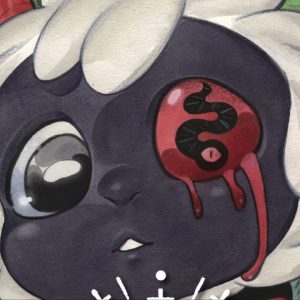and Compulsion Games’ We Happy Few do not appear to have been officially refused classification in Australia.IGN has been in contact with the Australian Classification Board and is awaiting more background on the matter but, since yesterday, the automated International Age Rating Coalition (IARC) game classification tool generated RC ratings for Kingdom Come: Deliverance and We Happy Few have both been amended and now reflect the same R18+ ratings that were earlier applied by the Classification Board itself.

The recent RC rating for Kingdom Come: Deliverance has been changed to match the existing R18+ rating.
It’s worth noting that Kingdom Come: Deliverance and We Happy Few had remained on sale in Australia since their purported July “bans”, and are still available everywhere we looked at the time of writing.
The IARC tool is an online questionnaire where applicants answer a series of questions about content to have games rated for various digital storefronts. In Australia the free tool can only be used for digitally-distributed games; all physical releases are still required to be rated by the Classification Board itself. The IARC tool has been in use in Australia since 2014.
The Royal Edition of Kingdom Come: Deliverance was successfully rated R18+ in Australia in May without issue. We Happy Few was initially refused classification but that decision was unanimously overturned by the Australian Classification Review Board and the game was rated R18+ in July 2018. The Review Board is an independent panel which makes fresh classification determinations when original decisions are challenged by applicants, and the Review Board decision takes the place of the original decision made by the Classification Board.
Why Kingdom Come: Deliverance and We Happy Few were put through the IARC rating tool when they already had existing Australian R18+ ratings is unclear. It does appear that the automated tool may lack some of the nuance of the Board itself but, back when the IARC tool was first approved for use in Australia, Interactive Games and Entertainment Association (IGEA) CEO Ron Curry explained to IGN that after testing they discovered “very, very little in the way of discrepancies” between IARC ratings and Board ratings.
“[T]he ones that don’t match, the developers usually end up with a higher classification, because they tend to be overly sensitive to what they’re putting in,” said Curry at the time.
It should be noted, however, that Kingdom Come: Deliverance and We Happy Few are far from the only games to have received unnecessary IARC ratings over the past few months – it seems they’re just the ones that have been noticed due to their temporary RC determinations. IGN has found an eclectic assortment of older, previously-rated games from a host of completely separate publishers that also have duplicate (and sometimes different) ratings awarded via IARC in the Classification Board’s database, including Doom (rated R18+ for its release in 2016, and rated MA15+ via IARC in July, 2019), Far Cry 5 (rated MA15+ for its 2017 release, and rated R18+ via IARC in July, 2019), and Mortal Kombat X (rated R18+ on release in 2015, and rated MA15+ via IARC earlier this month). FIFA 19, F1 2019, Outlast, and What Becomes of Edith Finch are just some of the other Board-rated games with pre-established classifications that we’ve found have been unnecessarily resubmitted for another Australian rating via the IARC tool. Where or why these IARC submissions are occurring is unconfirmed.
This classification issue has arrived in the wake Bohemia Interactive’s DayZ and its recent ratings drama down under, though the difference is DayZ was officially refused classification following a conventional submission by local distributor. DayZ was banned for “illicit or proscribed drug use related to incentives or rewards,” a quirk of the Australian game classification guidelines that Australia’s IGEA has called “nonsensical.” DayZ was refused classification due to cannabis use that, in the Classification Board’s opinion, “acted as an incentive or reward to boost overall health and survivability.” A modified version version of DayZ was successfully reclassified MA15+ in Australia yesterday.
Luke is Games Editor at IGN’s Sydney office. You can find him on Twitter every few days @MrLukeReilly.



























